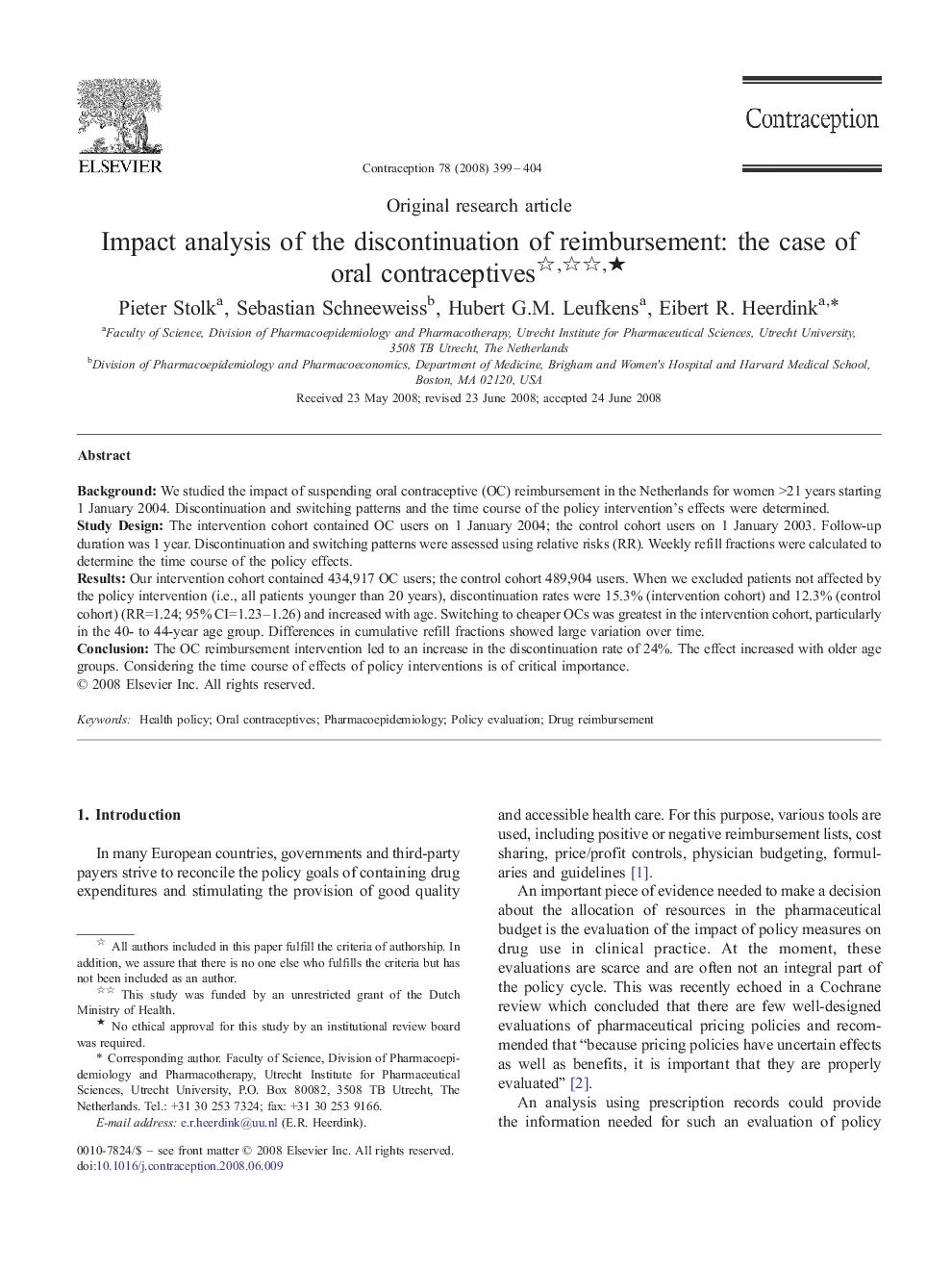| کد مقاله | کد نشریه | سال انتشار | مقاله انگلیسی | نسخه تمام متن |
|---|---|---|---|---|
| 3915371 | 1251503 | 2008 | 6 صفحه PDF | دانلود رایگان |

BackgroundWe studied the impact of suspending oral contraceptive (OC) reimbursement in the Netherlands for women >21 years starting 1 January 2004. Discontinuation and switching patterns and the time course of the policy intervention's effects were determined.Study DesignThe intervention cohort contained OC users on 1 January 2004; the control cohort users on 1 January 2003. Follow-up duration was 1 year. Discontinuation and switching patterns were assessed using relative risks (RR). Weekly refill fractions were calculated to determine the time course of the policy effects.ResultsOur intervention cohort contained 434,917 OC users; the control cohort 489,904 users. When we excluded patients not affected by the policy intervention (i.e., all patients younger than 20 years), discontinuation rates were 15.3% (intervention cohort) and 12.3% (control cohort) (RR=1.24; 95% CI=1.23–1.26) and increased with age. Switching to cheaper OCs was greatest in the intervention cohort, particularly in the 40- to 44-year age group. Differences in cumulative refill fractions showed large variation over time.ConclusionThe OC reimbursement intervention led to an increase in the discontinuation rate of 24%. The effect increased with older age groups. Considering the time course of effects of policy interventions is of critical importance.
Journal: Contraception - Volume 78, Issue 5, November 2008, Pages 399–404